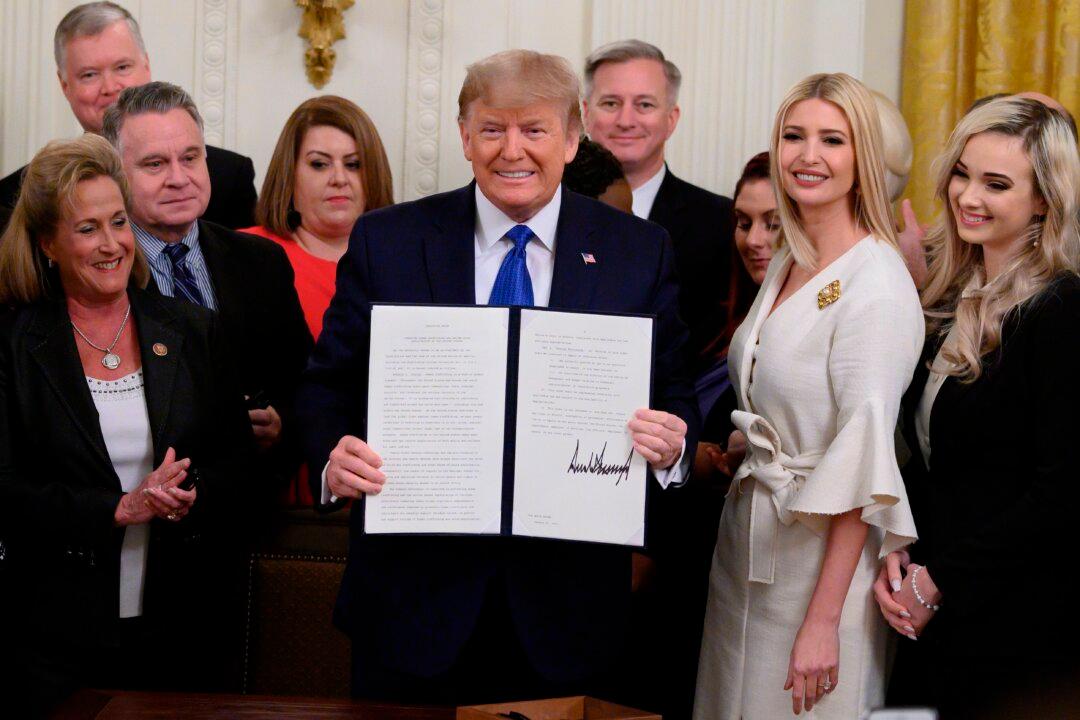Experts, a former victim, and some anti-trafficking groups said they are encouraged by the administration’s executive order aimed at eliminating human trafficking, describing it as a “historical collaboration” between federal agencies, and one of the “more comprehensive” actions taken by the White House to date.
The directive, signed into law by President Donald Trump on Jan. 31, sets into motion a wide range of actions. The order “on combating human trafficking and online child exploitation in the United States” broadly prioritizes “resources to vigorously prosecute offenders, to assist victims, and to provide prevention education to combat human trafficking and online sexual exploitation of children.”





